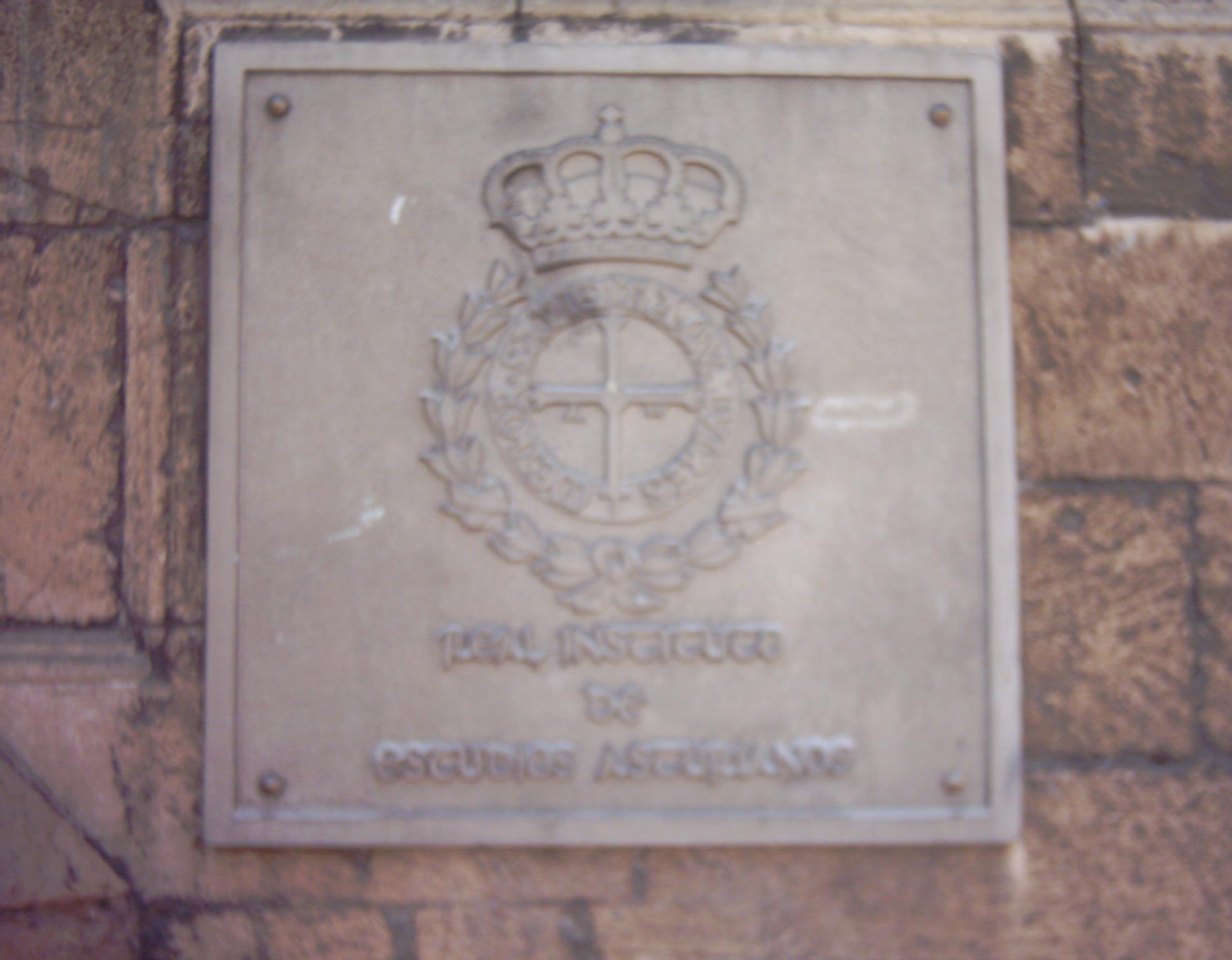|
Royal Institute Of Asturian Studies
The Royal Institute of Asturian Studies (Asturian: Real Institutu d'Estudios Asturianos or RIDEA) is a public cultural institution of the autonomous community of Asturias. It aims include "research, development and direction of work and studies which tend to conserve, enhance and increase the science, culture and art in the Principality of Asturias in all its aspects and more specifically in Asturias". Established in 1945, it is a part of the Ministry of Education and Culture. It is headquartered in the Palacio de los Condes de Toreno in Oviedo's Porlier Square, and includes Tuscan columns. The Prince of Asturias Prince or Princess of Asturias ( es, link=no, Príncipe/Princesa de Asturias; ast, Príncipe d'Asturies) is the main substantive title used by the heir apparent or heir presumptive to the monarchy of Spain, throne of Spain. According to the Sp ..., Felipe de Borbon y Grecia, is honorary chairman. References External links Official website {{Authority control ... [...More Info...] [...Related Items...] OR: [Wikipedia] [Google] [Baidu] |
Asturias
Asturias (, ; ast, Asturies ), officially the Principality of Asturias ( es, Principado de Asturias; ast, Principáu d'Asturies; Galician-Asturian: ''Principao d'Asturias''), is an autonomous community in northwest Spain. It is coextensive with the province of Asturias and contains some of the territory that was part of the larger Kingdom of Asturias in the Middle Ages. Divided into eight ''comarcas'' (counties), the autonomous community of Asturias is bordered by Cantabria to the east, by León (Castile and León) to the south, by Lugo (Galicia) to the west, and by the Cantabrian sea to the north. Asturias is situated in a mountainous setting with vast greenery and lush vegetation, making it part of Green Spain. The region has a maritime climate. It receives plenty of annual rainfall and little sunshine by Spanish standards and has very moderated seasons, most often averaging in the lower 20s celsius. Heatwaves are rare due to mountains blocking southerly winds. ... [...More Info...] [...Related Items...] OR: [Wikipedia] [Google] [Baidu] |
Ministry Of Education (Spain)
The Ministry of Education and Vocational Training (MEFP) is the department of the Government of Spain responsible for proposing and carrying out the government policy on education and vocational training, including all the teachings of the education system except university education, without prejudice to the competences of the National Sports Council in matters of sports education. Likewise, it is also the responsibility of this Department the promotion of cooperation actions and, in coordination with the Ministry of Foreign Affairs, the promotion of international relations in the field of non-university education. The Education in Spain is established as a decentralized system in which the regions has powers over the basic and secondary education while the central government establishes the general basis of the system and it is responsible for the tertiary education. Currently, the Education Ministry has no authority over universities because it is the responsibility of the ... [...More Info...] [...Related Items...] OR: [Wikipedia] [Google] [Baidu] |
Palacio De Los Condes De Toreno
Palacio (''palace'') is a Spanish habitational name. It may have originated from many places in Spain, especially in Galicia and Asturies. Notable people with the surname include: *Agustina Palacio de Libarona (1825-1880), Argentine writer, storyteller, heroine *Alberto Palacio, engineer *Alfredo Palacio, former president of Ecuador *Andy Palacio, Belizean musician *Emilio Palacio, Ecuadorian journalist *Ernesto Palacio, opera singer *Héctor Palacio, Colombian road racing cyclist *Milt Palacio, basketball player *Rodrigo Palacio, footballer * R. J. Palacio, American writer of the 2012 children's novel ''Wonder Wonder most commonly refers to: * Wonder (emotion), an emotion comparable to surprise that people feel when perceiving something rare or unexpected Wonder may also refer to: Arts and media Fictional entities * The Wonders, a fictional band ...'' See also * Palacios (other) References {{surname, Palacio Surnames of Spanish origin ... [...More Info...] [...Related Items...] OR: [Wikipedia] [Google] [Baidu] |
Oviedo
Oviedo (; ast, Uviéu ) is the capital city of the Principality of Asturias in northern Spain and the administrative and commercial centre of the region. It is also the name of the municipality that contains the city. Oviedo is located approximately southwest of Gijón and south of Avilés, both of which lie on the shoreline of the Bay of Biscay. Oviedo's proximity to the ocean of less than in combination with its elevated position with areas of the city more than 300 metres above sea level causes the city to have a maritime climate, in spite of its not being located on the shoreline itself. History The Kingdom of Asturias began in 720, with the Visigothic aristocrat Pelagius's (685–737) revolt against the Muslims who at the time were occupying most of the Iberian Peninsula. The Moorish invasion The Umayyad conquest of Hispania, also known as the Umayyad conquest of the Visigothic Kingdom, was the initial expansion of the Umayyad Caliphate over Hispania (i ... [...More Info...] [...Related Items...] OR: [Wikipedia] [Google] [Baidu] |
Prince Of Asturias
Prince or Princess of Asturias ( es, link=no, Príncipe/Princesa de Asturias; ast, Príncipe d'Asturies) is the main substantive title used by the heir apparent or heir presumptive to the monarchy of Spain, throne of Spain. According to the Spanish Constitution of 1978: The title originated in 1388, when King John I of Castile granted the dignitywhich included jurisdiction over the territorySuárez González 2000, p. 395. – to his first-born son Henry III of Castile, Henry. In an attempt to end the dynastic struggle between the heirs of Kings Peter of Castile, Peter I and Henry II of Castile, the principality was chosen as the highest jurisdictional lordship the King could grant that had not yet been granted to anyone.Suárez González 2000, p. 394. The custom of granting unique titles to royal heirs had already been in use in the Kingdoms of Kingdom of Aragon, Aragon (Prince of Girona), Kingdom of England, England (Prince of Wales), and Kingdom of France, France (Dauphin o ... [...More Info...] [...Related Items...] OR: [Wikipedia] [Google] [Baidu] |

.jpg)

